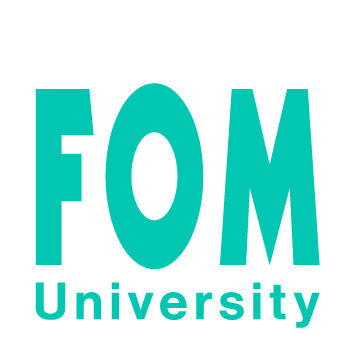Unfortunately no results for your search
Oh no, somethings seems to have the broke the search results. Please try rephrasing your search term!
Business Administration
Master of Business Administration (MBA)
Business Administration
Degree: Master of Business Administration (MBA)
For experts and managers wishing to acquire strategic managerial expertise in order to pursue new career opportunities.
The general management degree for the top managers of tomorrow: During the MBA degree course from FOM University of Applied Sciences you will acquire all-round expertise in all of the most important corporate functions – in a way that is hands-on, forward-looking and with reference to international correlations.
Graduates of the full time Master’s programme “Master of Business Administration” are distinguished by their entrepreneurial 360°-view: by conveying comprehensive business knowledge and management competencies, MBA students develop into business-minded, assertive personalities, who are able to safely navigate the international business world.
The core goal of the MBA degree is the development of integrative, practice-oriented thinking and action. Real case studies from the world of business and a lively mix of teaching methods help to sharpen your overall, interdisciplinary perspective. Thus, you will gain important knowledge that will allow you to maintain an overview of all operational processes when making decisions. A voluntary coaching programme, which runs alongside the degree course, can also support you with your own personal development.
You will complete your master studies in Business Administration with the academic degree of Master of Business Administration (MBA).
Duration
Accreditation (Master)

Studying full-time in India and Germany
Master’s degree on campus
In cooperation with FOM Hochschule, students from India now also have the opportunity to participate in the Business Administration Master’s programme at Great Learning Education Services Pvt. Ltd., India.
The first semester of the study programme will be held online with Great Learning in India, and the second and third semester will take place at the FOM Hochschule at the German University Center in Essen, Germany.
- Prerequisites for admission
- Fees & Registration
- Contact in India
What you need for admission
University degree* (Diplom, Magister, Bachelor, Staatsexamen)
- worth 210 Credit Points** (applicants with a university degree worth 180 Credit Points** may be admitted to a course after appropriate professional experience or other university achievements are recognised)
- at least one year’s professional experience after the first degree
- an adequate knowledge of English (corresponding to an intermediate language level B2 according GER, e.g. at least 860 points TOEIC or at least 83 points TOEFL)
* Degrees from accredited Bachelor training programmes at Berufsakademien [tertiary education institutions offering academic training and practical in-company training]
** FOM awards credit points according to the standards of the European Credit Transfer and Accumulation System (ECTS). They measure the workload required of students in the study programme
Service Office
+91-8069474529
Study programme
Semester Overview
Subject to change.



